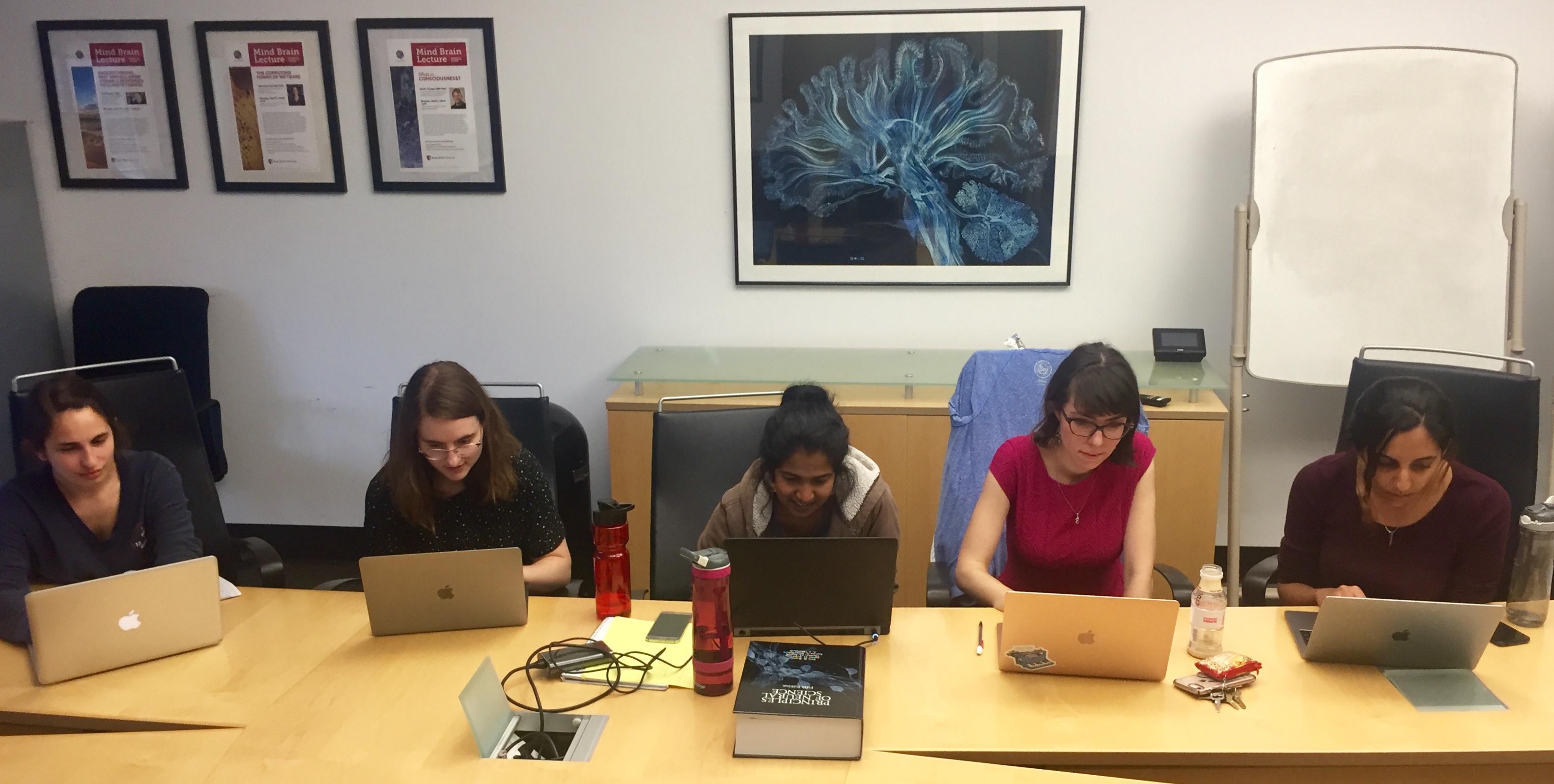PhD Program in Neuroscience
Alfredo Fontanini
Department Chair
Arianna Maffei
Program Director

If you are considering a PhD degree in neuroscience, Stony Brook's Graduate Program in Neuroscience should interest you.
Our graduate program offers multidisciplinary training leading to a PhD degree or combined MD/PhD given in conjunction with the Renaissance School of Medicine at Stony Brook University.
Our total student population is usually around 40. Approximately half of our students are female, half are US citizens, 6-10 percent are classified as minority. In general, the program graduates anywhere from four to eight students per year and accepts an incoming class of five to ten.
Entrance into the PhD program is considered very competitive. Grades and recommendations from former instructors are among the factors considered in the decision making process. Admissions requirements are further described in the program's Guidelines.
Funding for students in the PhD program comes from state sources, individual fellowships, and faculty research grants. The stipend for the academic year 2025-2026 is $36,000 and full tuition and broad based fees scholarships are awarded to all students in good standing.
Upon arriving on campus in the fall, incoming PhD students attend university and program sponsored orientation programs designed to quickly acclimate them to the essentials of graduate life and to enable them to begin their career studies. For example, staff from the Graduate School provide TA (teaching assistant) training, and SPEAK tests to international students. Employee Relations presents details of health benefits, and the department's graduate program faculty describe the program objectives and requirements.
First year PhD students all have their own study carrels in student offices. In later years, students have space in their home research laboratories.
Early in the semester weekly lunch meetings for 1st year students with faculty and a mini-course in ethics round out the introductory aspects of PhD training in Neuroscience at Stony Brook.
In setting course requirements and recommendations, individual academic backgrounds, interests, and career goals of incoming students are considered carefully. The course of study outlined in our Guidelines is presently being revamped. A core curriculum, laboratory rotations, and a major research project will remain as mainstays of our curriculum-all designed to ensure broad competence in modern neuroscience. Teaching and participation in seminars are important aspects of the education you will receive in our graduate training program.
Students who intend to pursue careers in translational research are encouraged to read about the new Stony Brook Scholars in BioMedical Sciences Program. This "Med into Grad" certificate program provides advanced training in translational research through partnerships between basic biomedical laboratories and clinical research programs. A description of this unique program may be found here.
There are over 40 training faculty involved in the PhD program that together offer a broad choice of advisors and research topics from which to choose. Seventeen have primary appointments in the Department of Neurobiology and Behavior. Others have primary appointments in university departments of Biochemistry, Medicine, Pediatrics, Pharmacology, Physiology and Biophysics, Psychology, Psychiatry and others or in off-campus departments at Brookhaven National Laboratory and Cold Spring Harbor Laboratories. Broadly, faculty research interests include Biophysics and Cellular Neurobiology, Molecular Neurobiology, Integrative and Behavioral Neurobiology, and Computational/Theoretical Neuroscience. You can find more about faculty research areas on our Participating Faculty page.
